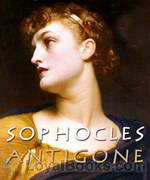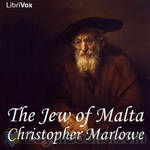|
Books Should Be Free Loyal Books Free Public Domain Audiobooks & eBook Downloads |
|
|
Books Should Be Free Loyal Books Free Public Domain Audiobooks & eBook Downloads |
|
Plays |
|---|
|
Book type:
Sort by:
View by:
|
By: Friedrich Schiller (1759-1805) | |
|---|---|
 Demetrius
Demetrius
| |
By: William Morris (1834-1896) | |
|---|---|
 The Tables Turned or, Nupkins Awakened. A Socialist Interlude
The Tables Turned or, Nupkins Awakened. A Socialist Interlude
| |
By: Alfred Noyes (1880-1958) | |
|---|---|
 Rada A Drama of War in One Act
Rada A Drama of War in One Act
| |
By: William Dean Howells (1837-1920) | |
|---|---|
 The Elevator
The Elevator
| |
 The Albany Depot : a Farce
The Albany Depot : a Farce
| |
 The Garotters
The Garotters
| |
 Evening Dress Farce
Evening Dress Farce
| |
 The Story of a Play A Novel
The Story of a Play A Novel
| |
 The Register
The Register
| |
 The Parlor Car
The Parlor Car
| |
 A Likely Story
A Likely Story
| |
By: Bret Harte (1836-1902) | |
|---|---|
 The Queen of the Pirate Isle
The Queen of the Pirate Isle
| |
By: Sophocles (495-406 BC) | |
|---|---|
 Antigone
Antigone
This is the final installment in Sophocles's Theban Plays, following Oedipus Rex and Oedipus at Colonus. Oedipus's daughter Antigone deliberately breaks the laws of Thebes when she buries her brother's body and is sentenced to death. She clashes with Creon, the King of Thebes, over what constitutes justice and morality: the laws of the state or the laws of the individual. | |
 Electra
Electra
Sophocles' play dramatizes the aftermath of Agamemnon's murder by his wife Clytemnestra and her lover Aegisthus. His daughter Electra is hungry for revenge and longs for the return of her brother Orestes to help her achieve her ends. | |
By: G. K. Chesterton (1874-1936) | |
|---|---|
 Magic: A Fantastic Comedy
Magic: A Fantastic Comedy
| |
By: Algernon Charles Swinburne (1837-1909) | |
|---|---|
 Rosamund, queen of the Lombards, a tragedy
Rosamund, queen of the Lombards, a tragedy
| |
 Chastelard, a tragedy
Chastelard, a tragedy
| |
 Erechtheus A Tragedy (New Edition)
Erechtheus A Tragedy (New Edition)
| |
 Locrine: a tragedy
Locrine: a tragedy
| |
By: Winston Churchill (1871-1947) | |
|---|---|
 Dr. Jonathan
Dr. Jonathan
| |
By: Christopher Marlowe (1564-1593) | |
|---|---|
 The Tragical History of Doctor Faustus
The Tragical History of Doctor Faustus
The Tragical History of Doctor Faustus, normally known simply as Doctor Faustus, is a play by Christopher Marlowe, based on the Faust story, in which a man sells his soul to the devil for power and knowledge. Doctor Faustus was first published in 1604, eleven years after Marlowe's death and at least twelve years after the first performance of the play. | |
 The Jew of Malta
The Jew of Malta
Christopher “Kit” Marlowe (baptised 26 February 1564 – 30 May 1593) was an English dramatist, poet, and translator of the Elizabethan era. The foremost Elizabethan tragedian before William Shakespeare, he is known for his magnificent blank verse, his overreaching protagonists, and his own untimely death. The Jew of Malta (1589) is an original story of religious conflict, intrigue, and revenge, set against a backdrop of the struggle for supremacy between Spain and the Ottoman Empire in the Mediterranean... | |
 Tamburlaine the Great
Tamburlaine the Great
Tamburlaine the Great is the name of a play in two parts by Christopher Marlowe. It is loosely based on the life of the Central Asian emperor, Timur 'the lame'. Written in 1587 or 1588, the play is a milestone in Elizabethan public drama; it marks a turning away from the clumsy language and loose plotting of the earlier Tudor dramatists, and a new interest in fresh and vivid language, memorable action, and intellectual complexity. Along with Thomas Kyd's The Spanish Tragedy, it may be considered the first popular success of London's public stage... | |
 Tragical History of Doctor Faustus (1616 version)
Tragical History of Doctor Faustus (1616 version)
The Tragicall History of the Life and Death of Doctor Faustus, commonly referred to simply as Doctor Faustus, is a play by Christopher Marlowe, based on the Faust story, in which a man sells his soul to the devil for power and knowledge. Doctor Faustus was first published in 1604, eleven years after Marlowe's death and at least twelve years after the first performance of the play. "No Elizabethan play outside the Shakespeare canon has raised more controversy than Doctor Faustus. There is no agreement concerning the nature of the text and the date of composition... | |
 Edward II
Edward II
Christopher Marlowe's Elizabethan tragedy focuses on the downfall of King Edward II, whose love for his favorite courtier, Piers Gaveston, leads to rebellion. | |
 Massacre at Paris
Massacre at Paris
| |
By: Oliver Optic (1822-1897) | |
|---|---|
 The Birthday Party, A Story For Little Folks
The Birthday Party, A Story For Little Folks
Flora Lee’s birthday came in July. Her mother wished very much to celebrate the occasion in a proper manner. Flora was a good girl, and her parents were always glad to do any thing they could to please her, and to increase her happiness. | |
By: J. M. Barrie (1860-1937) | |
|---|---|
 Dear Brutus
Dear Brutus
At a house in the country 8 guests are invited to enter a magical wood to see what might have happened had they made a different choice in life. Even though they are warned away from the wood, they take a chance and enter. The title comes from Shakespeare: "The fault lies in our selves, dear Brutus, not in our stars...," and summarizes the theme of this play: given a second chance, will people still make the same mistakes? | |
By: George Bernard Shaw | |
|---|---|
 Candida
Candida
Candida, a comedy by playwright George Bernard Shaw, was first published in 1898, as part of his Plays Pleasant. The central characters are clergyman James Morell, his wife Candida and a youthful poet, Eugene Marchbanks, who tries to win Candida's affections. The play questions Victorian notions of love and marriage, asking what a woman really desires from her husband. The cleric is a Fabian Socialist, allowing Shaw—himself a Fabian—to weave political issues, current at the time, into the story. | |
 Major Barbara
Major Barbara
George Bernard Shaw's Major Barbara focuses on the family of aristocratic Lady Britomart Undershaft and her estranged husband Andrew, a millionaire armaments manufacturer. Their daughters Sarah and Barbara are both engaged to be married, and Lady Britomart decides to ask Andrew for monetary support. Barbara is a Major in the Salvation Army, and agrees to let her father visit the mission in the East End of London where she works. In exchange, she agrees to visit his munitions factory. The conflict between Barbara's philanthropic idealism and her father's hard-headed capitalism clash when he decides he wants to fund the Salvation Army... | |
 Don Juan in Hell
Don Juan in Hell
Don Juan in Hell is an excerpt (Act 3, Scene 2) from George Bernard Shaw’s Man and Superman. It is often performed as a stand-alone play. In it, three characters from Mozart’s Don Giovanni (Don Juan, Dona Ana, and the statue of the Commendatore, Dona Ana’s father) meet in Hell and, joined by the Devil, have a philosophical debate on a variety of subjects, including Heaven and Hell, men, women and marriage. In the end, they all decide where they will spend eternity. | |
 Heartbreak House
Heartbreak House
On the eve of World War I, Ellie Dunn, her father, and her fiancé are invited to one of Hesione Hushabye’s infamous dinner parties. Unfortunately, her fiancé is a scoundrel, her father’s a bumbling prig, and she’s actually in love with Hector, Hesione’s husband. This bold mix of farce and tragedy lampoons British society as it blithely sinks towards disaster. | |